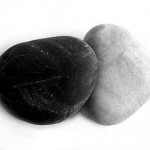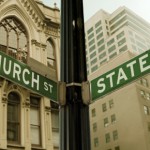We have elections coming up in a week and a half. Why should we vote? Think about it: You are one person. Will your particular vote change the election?
Even in times when elections seem close, they are rarely are. A recent piece in the New York Times tells us, “The odds that your vote will actually affect the outcome of a given election are very, very, very slim.”
So What?
Should this truth dissuade us from voting? Absolutely not. It’s not my job to encourage us to vote one way or another. But I can teach, from the perspective of Jewish law and tradition, why voting is an obligation and responsibility.
The first reason comes from the Talmud. The Talmud compiles the teachings and debates of the rabbis between 100-500 C.E. One of their core teachings is dina d’malchuta dina, which means the law of the land is the law.
The Christian Gospels, by the way, drew from this teaching when they proclaimed the famous law, “Render unto Caeser what is Caeser’s, and unto God what is God’s.” We live by civic law. If we value the freedoms we enjoy, we need to participate in securing them. In other words, being a good citizen is a religious responsibility.
Religion is Public
The second reason is derived from the nature of Judaism itself. We often think religion dwells solely in the private realm. The philosopher Alfred North Whitehead said that “religion is what one does with his own solitude.”
But in Judaism (and in other faiths) religion also has a public dimension. It’s not something we do alone. It’s something we do with other people. Consider marriage. Even today, when religious commitment often seems to be waning, more than 80% of Americans choose to have a religious wedding ceremony.
Without seeking to impose them on others, we can also express our religious values in the policies and ideals and interests we support. Voting is the best way to do so.
You are Indispensable
The third and final reason requires a certain degree of faith. An old piece of Jewish wisdom says we should carry two slips of paper with us at all times. (Or, as one artist recently suggested, two stones) 
On the first is written, “I am but dust and ashes.” The other says, “The world was created for my sake.”
They seem like opposites. The first says we do not matter. We are like a floating particle in the wind. The second says we matter more than anything else. We are the center of the universe.
Neither slip of paper expresses the whole truth. But taken together, they prescribe a beautiful sense of balance. If we thought exclusively in terms of “I am but dust and ashes,” we would do nothing. We would say: “My vote doesn’t matter. I’m just one person. Millions of others will vote.” In doing so, we would leave our civic life to the desires of others.
We need the counter-veiling voice: “The world was created for my sake. The future of this country depends on me. I need to vote.”
Not Taking Life for Granted
At its core, faith is about not taking life for granted. We recite blessings over food so that we remember how lucky we are to enjoy it. We celebrate major life cycle moments so we recognize how important relationships are to our happiness. Religion cultivate gratitude and responsibility.
Similarly, voting helps prevent us from taking our freedom, our country for granted. When we participate, we realize how critical we are. And we also recognize how blessed we are to live in this country of freedom, whose survival depends on us. To quote Abraham Lincoln, we vote so that “this government of the people, by the people, and for the people, shall not perish from the earth.”


